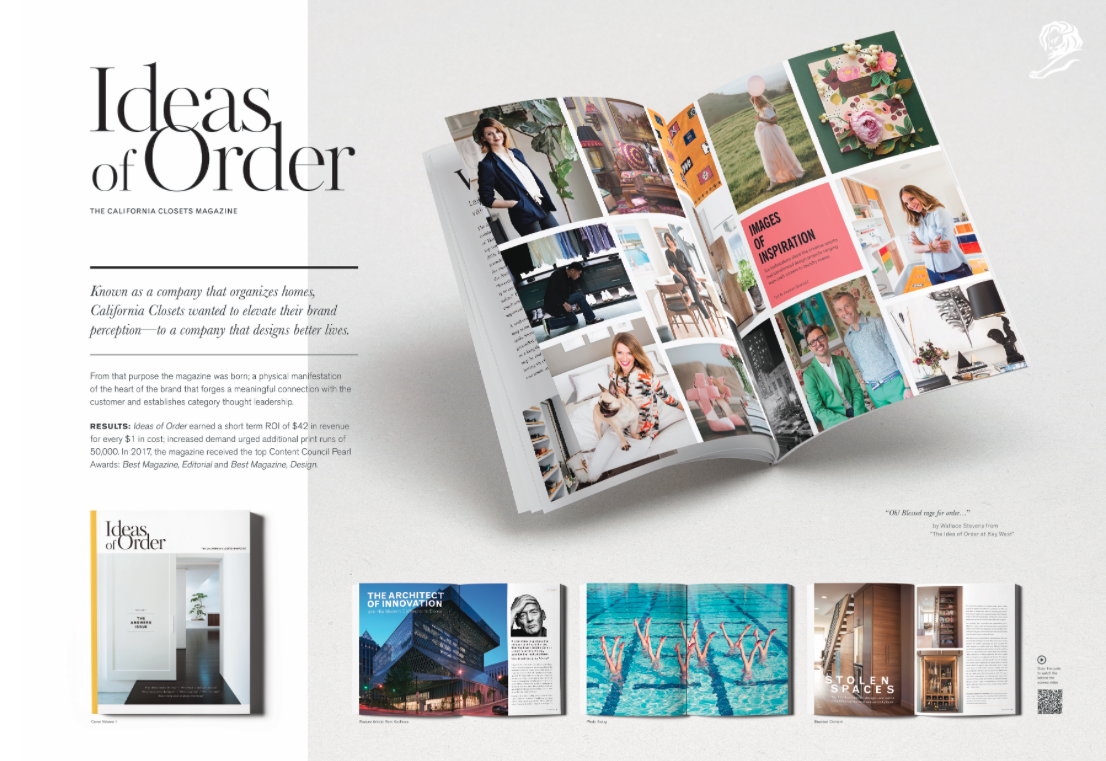Now, most companies want to be like Red Bull. But we often hear from clients and prospects that their products and services don’t feel as conducive to big, viral stunt marketing like Red Bull. They see consumer-facing brands working in exciting areas like retail, beauty, and food, and many clients think, “Content works for companies like that.” But Red Bull didn’t build its reputation just by being cool or extreme. A company starting a content project from scratch Five years ago, a lot of companies were just creating content without a plan. A company with something to prove Maybe your company sells a taboo product (Poo-Pourri). When Hims announced they were launching a brand of vitamins and medications for women, appropriately called Hers, it seemed like an obvious move. The Hers product line was accompanied by a new branded blog called Savoir Vivre. It’s clear the brand concluded that women were more accustomed to reading about sexual health, so they were able to skip the innuendo. it’ll make your mouth feel funny.” A company solving a complex problem Some companies just can’t cram their product marketing and brand messaging into 30-second ads. We tell clients and prospects in B2B industries that they’re still marketing to people.
I was traveling alone in Portland, Oregon, the summer Red Bull sponsored a flugtag (German for airshow). People were building quirky aircrafts and launching themselves off a pier onto a giant, inflatable cushion emblazoned with the energy drink logo, and locals were psyched.
“What are you talking about?” I’d say to every bartender or Lyft driver or artisanal ice cream entrepreneur who asked if I was going to the flugtag—this was Portland, after all.
Though I was still years from accepting a job in content marketing, I got a mini-education in the field each time someone brought up the stunt. It wasn’t as crazy as Stratos, everyone said, but Red Bull was helping to “Keep Portland Weird” with the marketing stunt. Though the scaffolding was obvious—it was impossible to talk about the air show without mentioning the brand by name—no one really seemed to care. If anything, they respected Red Bull’s candor.
At the time, I wondered how much money the brand was actually going to make on the stunt. Would it make any difference? (Most likely.) Was there a catch? (No.)
Now, most companies want to be like Red Bull. But we often hear from clients and prospects that their products and services don’t feel as conducive to big, viral stunt marketing like Red Bull. They see consumer-facing brands working in exciting areas like retail, beauty, and food, and many clients think, “Content works for companies like that.”
But Red Bull didn’t build its reputation just by being cool or extreme. The marketing efforts worked because the brand’s purpose aligned with what consumers wanted. That style of content marketing was also unheard of at the time.
There are a ton of companies out there waiting to benefit from content marketing, and most of them don’t sell exciting energy drinks. Here are four types of brands that can benefit the most.
A company starting a content project from scratch
Five years ago, a lot of companies were just creating content without a plan. Today, with so many helpful guides on tactics and strategy available, brands new to content marketing have more of a roadmap for success.
If you’re a marketer starting a new content initiative, you’re in a fantastic position to build a relationship with your target audience. As you’re developing a strategy, you’ll be able to see what your competitors have already done and where you can stand out.
Take California Closets, for example. The company could have aligned itself with bargain retailers in the industry, but by going all in on a new print magazine, Ideas of Order, it attracted an audience searching for high-end, luxury closet organization. It’s clear from the content that they’re…

COMMENTS